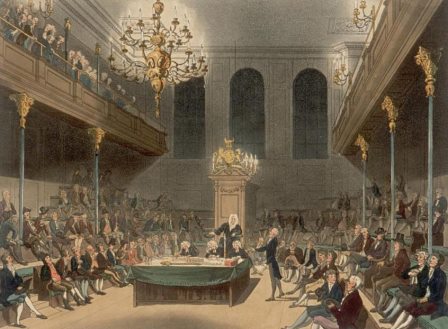The word ‘democracy’ used to be considered a ‘dirty’ word as it implied mob rule, and was used in negative sense for most of the 17th-19th century. ‘Democracy’ didn’t transform into a positive term until the late 19th century.
Why not ask your students to trace the changing meanings and associations of words over time?
- Create dictionary entries for a word from different periods of time and perspectives

Roz Hart, Head of History at City of Norwich School, was inspired to suggest this teaching activity by Professor Ted Vallance’s (University of Roehampton) lecture A very short history of democracy in Britain at this year’s New Teacher Subject Days.
Schools Programme members and those who attended the NTSD course in 2015/16 can download the resources from the event in the PTI Staffroom
Want to discover more inspiring subject knowledge? See our upcoming events and courses, including our CPD Subject Day: The Making of the modern Middle East for KS3-4
By Thomas Rowlandson (1756–1827) and Augustus Charles Pugin (1762–1832) (after) John Bluck (fl. 1791–1819), Joseph Constantine Stadler (fl. 1780–1812), Thomas Sutherland (1785–1838), J. Hill, and Harraden (aquatint engravers) (Plate 21 of Microcosm of London (1809)) [Public domain], via Wikimedia Commons
